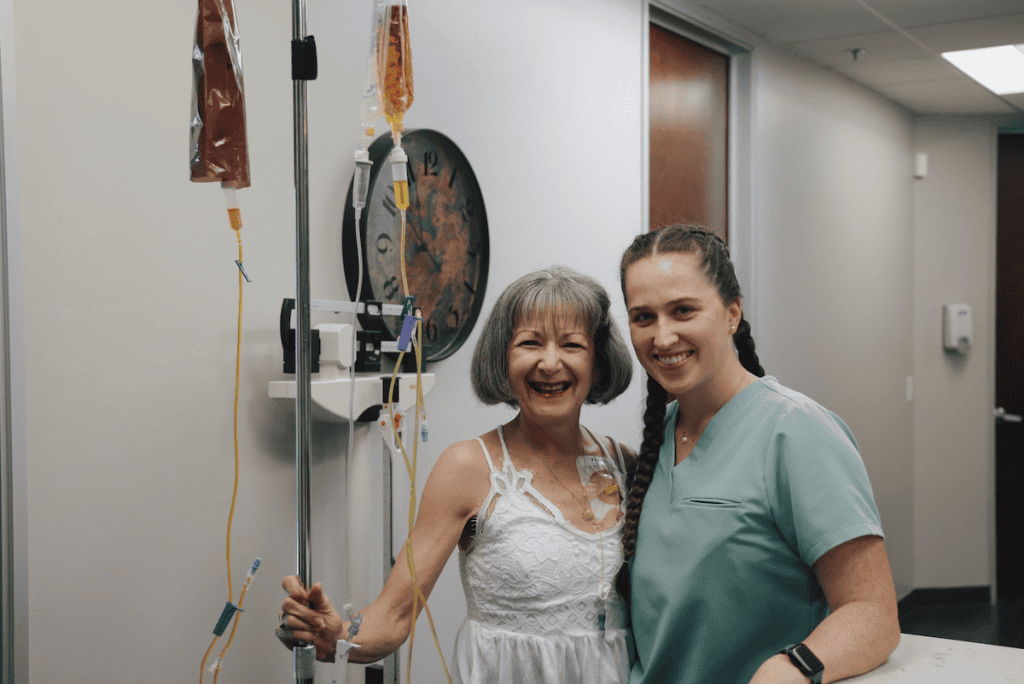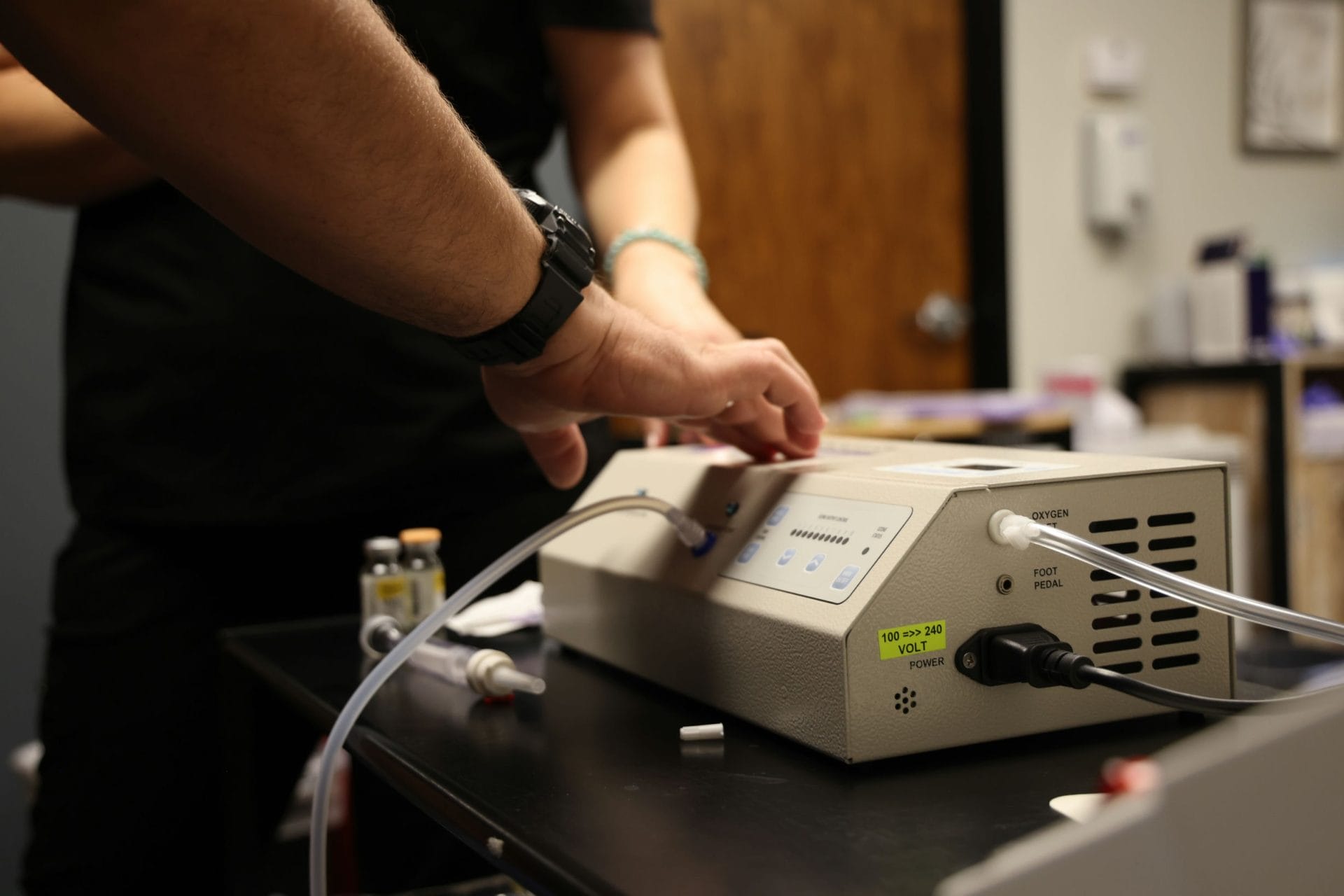The following guide explains effective chemotherapy alternatives for breast cancer.
Chemotherapy, a traditional treatment for breast cancer, is renowned for its potency in destroying cancer cells.
However, it comes with many serious side effects, leading many to seek chemotherapy alternatives for breast cancer.
In this comprehensive guide, we delve into five alternative treatments: Vitamin C IV Therapy, Immunotherapy, Low-Dose Metronomic Chemotherapy, Hormone Therapy, and Hyperbaric Oxygen Therapy.
Chemotherapy Alternatives for Breast Cancer
1. Vitamin C IV Therapy
Let’s begin with the first chemotherapy alternative for breast cancer, Vitamin C IV Therapy.
Vitamin C IV Therapy, or Intravenous Vitamin C Therapy, is a treatment that involves administering high doses of Vitamin C directly into the bloodstream.
This alternative has gained momentum due to its potential to selectively kill cancer cells, with minimal harm to healthy tissue.
Vitamin C IV Therapy has demonstrated its capacity to lessen the adverse effects associated with traditional cancer treatments.
As it is delivered directly into the bloodstream, it bypasses the digestive system, leading to higher levels of Vitamin C in the body than oral intake.
While Vitamin C IV Therapy has shown promising results, it is imperative to note that it can cause side effects, including dry mouth or throat, flushing, increased urination, and in rare cases, kidney complications.
Vitamin C IV Therapy vs Chemotherapy
Unlike chemotherapy, which can harm healthy cells while fighting cancer cells, Vitamin C IV Therapy targets cancer cells whilst sparing healthy cells.
However, more research is needed to validate the effectiveness of Vitamin C IV Therapy as a standalone treatment.
2. Immunotherapy
Next on our list of chemo alternatives for breast cancer is Immunotherapy.
Immunotherapy is a biological treatment that enhances the body’s natural defenses to control and eradicate cancer.
It works in various ways – by teaching the immune system to recognize and attack cancer cells, boosting immune cells, or enhancing the immune response.
Immunotherapy’s precision in targeting cancer cells while protecting healthy cells is a major advantage. It uses the body’s own immune system, making it a natural alternative to chemotherapy for breast cancer.
There are risks of reactions with Immunotherapy as it provokes the immune system. Side effects can range from fever, chills and fatigue to more severe symptoms like swelling, weight gain, or digestive problems.
Immunotherapy vs Chemotherapy
Unlike chemotherapy, the immune system continually adapts, so if a tumor escapes detection, the immune system can relaunch targeted attacks.
The immune system’s memory also enables a swift response if the cancer recurs.
3. Low-Dose Metronomic Chemotherapy
Low-Dose Metronomic Chemotherapy is another chemotherapy alternative for breast cancer that’s worth exploring.
Low-Dose Metronomic Chemotherapy uses insulin, a hormone that regulates blood sugar, to enhance the effectiveness of low-dose chemotherapy.
It operates on the principle that cancer cells have more insulin receptors than normal cells, making them more susceptible to the effects of chemotherapy when insulin is present.
A notable benefit of Low-Dose Metronomic Chemotherapy is that it allows for lower chemotherapy doses, reducing the severity of side effects usually associated with full-dose chemotherapy. It’s also believed to be more effective as it targets cancer cells specifically.
Low-Dose Metronomic Chemotherapy isn’t without risks. The main concern is the drop in blood sugar levels that can lead to symptoms like sweating, shaking, and dizziness. In severe cases, it can cause seizures or loss of consciousness.
Low-Dose Metronomic Chemotherapy vs Chemotherapy
Low-Dose Metronomic Chemotherapy differentiates itself from traditional chemotherapy by enabling lower doses of chemotherapy drugs, thus lessening side effects. However, it is crucial to note that it should only be administered under the supervision of a trained medical professional.
4. Hormone Therapy
Hormone Therapy serves as another alternative to chemotherapy for breast cancer.
Hormone Therapy is used for types of breast cancer that depend on hormones for growth. By blocking or altering these hormones, the cancer’s growth can potentially be halted.
Hormone Therapy is typically administered orally, allowing patients to take their treatment at home. It’s a less invasive option compared to traditional chemotherapy.
Hormone Therapy can cause side effects such as reduced sexual desire, bone loss, fatigue, and nausea. There’s also a slightly increased risk of developing other cancer types.
Hormone Therapy vs Chemotherapy
For certain hormone-dependent breast cancers, Hormone Therapy has proven to be as effective as chemotherapy. However, it’s important to note that it is not suitable for all types of breast cancer.
5. Hyperbaric Oxygen Therapy
Lastly, Hyperbaric Oxygen Therapy (HBOT) makes our list of chemotherapy alternatives for breast cancer.
HBOT involves breathing pure oxygen in a pressurized room or tube. The treatment increases the amount of oxygen in the blood, which can help the body’s natural healing process and enhance the growth of new blood vessels, potentially inhibiting cancer growth.
HBOT is a non-invasive therapy that can be used alongside other treatments to enhance their effectiveness.
It has been shown to reduce side effects associated with radiation therapy, such as dry mouth and difficulty swallowing.
While generally safe, HBOT can cause side effects like temporary nearsightedness, middle ear injuries, and lung collapse due to changes in air pressure.
HBOT vs Chemotherapy
Unlike chemotherapy, which uses chemicals to kill cancer cells, HBOT uses pure oxygen. It’s a supportive therapy usually used in conjunction with other treatments.
Chemo Alternatives for Breast Cancer – Final Thoughts
As breast cancer treatment continues to evolve, an increasing number of alternatives to chemotherapy are emerging.
From Vitamin C IV Therapy to Hyperbaric Oxygen Therapy, these alternatives offer new hope to those seeking less invasive or more natural treatments.
However, every treatment has its benefits and risks. Discuss these options with your healthcare provider to establish the most suitable treatment plan for you.
Frequently Asked Questions
What are some chemotherapy alternatives for breast cancer?
Alternatives include Vitamin C IV Therapy, Immunotherapy, Low-Dose Metronomic Chemotherapy, Hormone Therapy, and Hyperbaric Oxygen Therapy.
Can chemotherapy be avoided in breast cancer?
Chemotherapy can be avoided in some cases of breast cancer, but this depends on the type and stage of the cancer. For example, some early-stage breast cancers that are hormone receptor-positive may not require chemotherapy. However, chemotherapy is often recommended for more advanced breast cancers.
What are the side effects of chemotherapy?
The side effects of chemotherapy can vary depending on the type of chemotherapy drugs used. Common side effects include nausea, vomiting, hair loss, fatigue, and anemia. Other side effects may include mouth sores, diarrhea, and changes in taste.
What are the risks and benefits of chemotherapy alternatives for breast cancer?
The risks and benefits of chemotherapy alternatives for breast cancer vary depending on the specific treatment. Some alternative treatments may have fewer side effects than chemotherapy, but they may also be less effective. It is important to talk to your doctor about the risks and benefits of all treatment options before deciding.
How does targeted therapy differ from chemotherapy as a breast cancer treatment?
Targeted therapy is a type of cancer treatment that specifically targets the changes in cancer cells that help them grow, divide, and spread, while chemotherapy works by killing rapidly dividing cells in the body, which includes both cancer cells and some healthy cells. Because targeted therapies are more specific, they may have fewer side effects compared to traditional chemotherapy.






